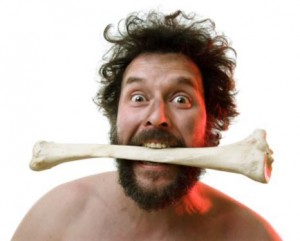The Caveman Diet and the Paleo Diet are one and the same. The Paleolithic Diet, which is commonly known as the Paleo Diet or the Caveman Diet, is based on the concept that our bodies are better suited to the diet of our human ancestors in the Paleolithic era. Basically, it says that if a caveman didn’t eat it, neither should you.
The major components of the Paleo Diet are meats (red meats, seafood, organ meats, and poultry), fruits, and vegetables. Healthy fats from eggs, nuts, seeds, and nut and seed oils are also recommended. The Paleo Diet prohibits grains, starches, sugars and artificial sweeteners, preservatives, dairy, legumes, and alcohol.
Health Benefits
The proponents of the Paleo Diet believe that we are genetically programmed to eat as our human ancestors did before the agricultural revolution. The premise of this diet is that by consuming foods that the cavemen ate, we can become as strong and healthy as they were. The Paleo Diet is rich in lean protein, vegetables, and fruits which help cut heart disease, diabetes, hypertension, obesity, and other chronic ailments that plague those of us who subsist on a diet composed primarily of carbs and sugars.
Those who advocate the Paleo Diet say that because it fills our bodies with dietary fiber, lean protein, and fluids, it prevents us from overeating and gaining excessive weight. It also controls our blood sugar and reduces the possibility of developing Type 2 diabetes. To reap the benefits of the diet, experts recommend eating like a caveman at least 80% of the time. The diet also encourages us to be more physically active, like our cavemen forefathers who had to hunt and forage for their every meal.
Criticisms
Many have criticized the Paleo Diet as being restrictive and unrealistic, saying that yes, a diet consisting of whole, unprocessed foods is recommended for good health, but that legumes, dairy (the low-fat kind), and whole grains are also beneficial and necessary.
Anthropologists have argued that humans in the Paleolithic era were actually already consuming grains, and even flour. According to them, the Paleo Diet is actually still being practiced in some civilizations today but that these civilizations are the ones located in regions where food scarcity is a problem and where people are always on the brink of starvation.
Health experts have also warned that a diet consisting of large amounts of protein, the central component of the Paleo Diet, can cause impaired kidney function and can actually lead to cardiovascular disease.
Meanwhile, environmentalists criticize the Paleo Diet as not being a sustainable dietary pattern for the modern world. According to them, a mostly-meat diet may have been suitable during the Paleolithic era, but not today when there are so many more people in the world and not enough space to grow the animals needed to sustain a Paleo Diet for everyone. Add to this the space needed to grow the crops needed to feed these animals and the greenhouse gases that cattle release, and the Paleo Diet sinks further down the sustainability scale.